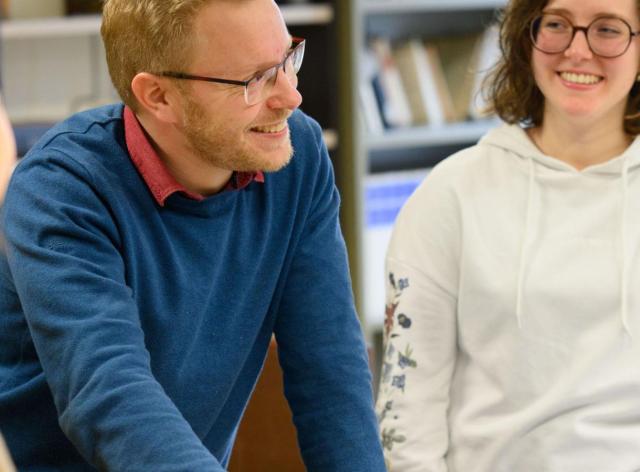Students at the University of Namur are committed to giving meaning to their training. Discover service-learning!
Service-Learning is a pedagogical approach that aims to incorporate social commitment into traditional academic teaching. The aim for students is to participate in a project or get involved in an organization whose missions relate to societal themes, such as social justice, migration or the environment.
The University of Namur is part of the Uniservitate network.
What is Uniservitate?
Uniservitate is an organization whose aim is to promote Service-Learning in Catholic higher education institutions worldwide. The initiative, supported by PORTICUS and the Latin American Center for Service-Learning (CLAYSS), aims to encourage institutions to offer integrated education to students. Through their studies, these students will then be able to bring about systematic change in our society by becoming actively involved in the issues of our time.
UNamur is one of the thirty universities supported by the Uniservitate network. It therefore benefits from support for the institutionalization of Service-Learning. The network is organized into 7 regions: Asia and Oceania, Latin America, North America, North-West Europe, South-West Europe, Central-East Europe and Middle East, and Africa. Each region is chaired by a "responsible" institution, a central hub.
Serve, learn, reflect
Service-Learning is based on three pillars: "Serve", "Learn" and "Reflect". Students give back to society by getting involved with a specific community, or by participating in a solidarity project. This commitment experience is carried out in collaboration with a local NPO, NGO or social enterprise. It enables students to open up to the world, take responsibility and become aware of their role in society. Students can then reflect on their experience, making a critical and structured return, and thus learn academically, civically and personally.
Serving
Service to society takes place through volunteering. Students' contribution to the community is significant. They respond to a real societal need, highlighted by the partner organization. Their commitment must be based on the concept of horizontal solidarity: the relationship with beneficiaries is reciprocal and mutually beneficial.
Learning
Academic learning is reinforced through the links made by students between the reality of the social issue and the course content. Service learning is aimed at students' overall personal development. Civic engagement enables them to acquire new values, open up to the world and confront their initial beliefs. They develop various interpersonal skills, take on responsibilities and learn about citizenship.
Reflecting
The "Reflecting" component of Service Learning is essential, and primarily serves to bridge the gap between service and learning. Students use their theoretical knowledge and learn from their service experiences. A process of reflection must be engaged throughout the learning program. Moments are therefore set aside for critical, structured and intentional reflection. This enables learning to be assessed on an ongoing basis, by recounting experiences and comparing initial expectations with final positions.

